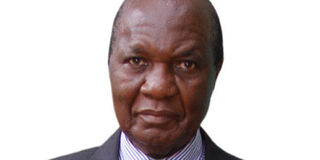How parties have survived breakups – the DP case

This is to refer to an article by Mr Timothy Kalyegira which was published in Sunday Monitor of October 7 with the title, “How political parties have survived breakups despite being divided.”
The article comes out as well meant and well delivered; but, in the interests of accuracy and for a proper record of the leadership profiles of the DP, the following brief observations need to be made.
When explaining what the author referred to as “tension”, “divisions” or “bickering” within the DP, he wrote as follows:
Tradition is a large part of the tension within the DP.
Purists feel that a true DP party president is one who was educated at St Mary’s College Kisubi, is a Muganda and a Roman Catholic. The current president, Norbert Mao, is an Acholi and was educated at Namilyango College, hence the tensions and bitter fall-out since his election.
This assertion is inconsistent with an observation the author makes earlier in the article where he points out that “… the rival factions in the DP… are all in agreement that the party of Benedicto Kiwanuka, Stanislaus Mugwanya (sic) and Paul Ssemogerere is their party and they are loyal to it.”
The assertion of a shared background in respect to school, ethnicity and religion, as DP’s binding bond, is inconsistent with the facts, because, for instance, the celebrated Benedicto Kagimu Mugumba Kiwanuka, was not educated at St Mary’s College Kisubi; he was educated at St Peter’s Secondary Nsambya and, thereafter, at St Pius X College Maseru, Basutoland (currently Lesotho), before going to the UK to study Law.
Perhaps inadvertently, the author is silent, not only on the secondary school DP’s fifth president, John Ssebaana Kizito, attended, i.e. King’s College Budo, but on his religious affiliation too, which was Anglican.
Ssebaana Kizito does not stand alone in isolation as a non-Catholic and as someone who was not educated at Kisubi who attained high office and high status in DP and who was neither embroiled nor was the object of bickering within the party.
On the contrary, the DP, thanks to its built-in capacity, zeal and dynamism, reaches out and brings into its fold men and women of quality and of diverse backgrounds.
Thus for the party faithful, the DP is not only the party of the DP presidents (past and present), but it is also the party of celebrated luminaries in much diversity. They have included: Boniface M. Byanyima, Shonby Ssenkatuuka (Mrs), Marjorie N. Mukasa (Mrs), Solomon Khabaka Mutenyo, Prof Senteza Kajubi and Mrs Senteza Kajubi, Prof Yoeri Kyesimira, Stanley Luwandagga Bbemba, Mr Paulo N. Kavuma, sheikhs Mugenyasooka, Mivule and Kalanda, as well as Hajj Yunusu Ssemakula and Hajj Asuman Makubayi. And to this list may be added the name of Kafumbe Mukasa. None of these was a Catholic and none of them went to school at St Mary’s College Kisubi.
In the specific case of Acholi, it can confidently be said that the region has produced some of the most outstanding DP leaders, right from its inception to the present day.
Past prominent Acholi leaders who are well remembered for their outstanding contributions to the integrity and development of the DP nationwide include: Alex Alijja Latim, Andrew Adimola, H. Jino Obonyo and Angel A. Banya.
Besides the inconsistencies in respect of the DP leaders’ backgrounds, the article has also to be corrected in respect of its listed leaders; Stanislaus Mugwanya, who was Regent and Omulamuzi (Chief Justice/Minister of Justice) at the time of the enactment of the Buganda 1900 Agreement when the newly installed Kabaka Daudi Chwa II was still a minor, is mistakenly listed as DP president.
When the DP was officially established in 1954, Stanislaus Mugwanya had long passed on. The correct reference should be to Matayo Mugwanya who was DP president, 1956-1958.




